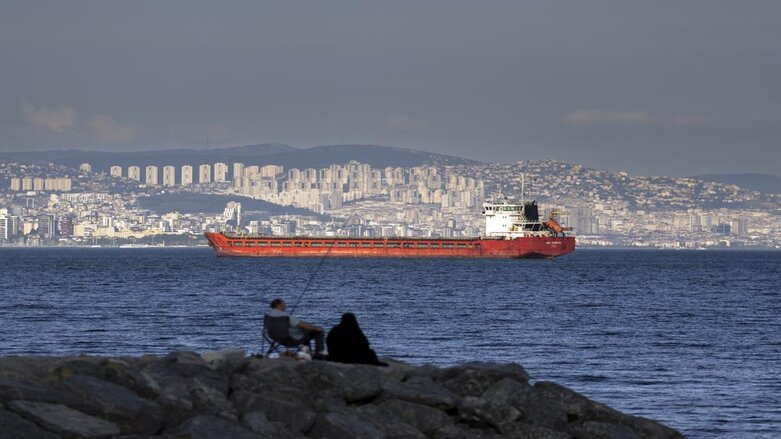Russian-Ukraine war boosts Turkish leverage

WASHINGTON DC (Kurdistan 24) – Knowledgeable observers of Turkish politics understand that Turkish President Recep Tayyip Erdogan has long sought a much bigger role on the world stage—one commensurate with his neo-Ottoman view of himself and his country.
Russia's Feb. 24 assault on Ukraine and the following war appear to have handed Erdogan just such a position. Not for many past decades, indeed perhaps for 100 years, since World War I, has Turkey played such a central role in international politics as it does now.
Those whom Erdogan opposes, consequently, suffer. That includes Iraq's Kurds, toward whom he has long held an antagonistic position.
Indeed, in late 2017, this reporter chanced to see Joe Biden at a local grocery store. People were gathered around him and asking him questions. So I joined in and asked the former vice-president about the Obama administration's policy toward the Kurds.
"Masoud Barzani is a good friend of mine," Biden replied, "and I wished we could have done more for the Kurds."
"Why didn't you?" I responded. "Turkey," he answered.
Turkey Plays Key Role in Agreement for Ukrainian Export of Grain—and is Commended by US
Ukraine is a major exporter of grain (corn and wheat) as well as vegetable oils, including sunflower oil, and it sends those foodstuffs around the world: to Europe, the Middle East, Africa, and Asia.
However, those goods have been blocked by Russia in Ukrainian ports—which lie on the Black Sea. It is through the Dardanelles Straits, astride which sits Istanbul, that ships must pass in order to travel out of the Black Sea into the Mediterranean and the world beyond.
Erdogan, thus, controls extraordinarily strategic territory. In addition, he has made a point of maintaining working relations with both Ukrainian President Volodymyr Zelensky and Russian President Vladimir Putin. Thus, he was uniquely positioned to mediate the free passage of Ukrainian grain onto the world market.
And that is what was announced on Friday. In a signing ceremony in Istanbul, overseen by UN Secretary-General Antonio Guterres and Erdogan, Russia and Ukraine signed agreements to facilitate the export of Ukrainian foodstuffs.
The US, among others, welcomed the accord. "The United Nations, the Republic of Turkey, Ukraine, and Russia have committed to a plan for resuming Ukrainian exports through the Black Sea and getting millions of tons of Ukrainian grain to those who need it around the world," Secretary of State Antony Blinken said in a statement issued later that day.
"The United States welcomes this deal and commends UN Secretary-General Guterres and Turkish President Erdogan for their committed diplomatic efforts to mediate these discussions," Blinken continued.
Outstanding Issues Between US and Turkey not Mentioned
Not mentioned in Blinken's statement were matters in serious dispute between Washington and Ankara. Above all, those issues are focused on Turkish threats to attack the Kurdish-led Syrian Democratic Forces (SDF) in northeast Syria, who have been America's principal partner in Syria in the fight against ISIS.
Following the trilateral Tehran summit last Tuesday among Erdogan, Putin, and Iranian President Ebrahim Raisi, Erdogan affirmed on Wednesday his intention to launch a cross-border attack into northeast Syria to create a 30-kilometer deep zone controlled by Turkey along its border with Syria.
The US strongly criticized that statement. State Department Spokesperson Ned Price warned, "Any new offensive would further undermine regional stability and put at risk US forces and the coalition's campaign against ISIS."
Nonetheless, the following day, on Thursday, the Turkish Foreign Minister, Mevlut Cavusoglu, repeated Erdogan's statement, prompting Price to repeat himself, again warning Ankara against any attack on the SDF.
Eric Edelman, Vice President Dick Cheney's Principle Deputy National Security Advisor (2001-3) and then US ambassador to Turkey (2003-5), has criticized Erdogan's efforts to exploit the Ukraine crisis for political gain.
Read More: Ex-US ambassador blasts Erdogan for opposing Finland and Sweden's entry into NATO
But that is what Erdogan appears to be doing—and the US ability to counter his moves appears limited because of the Ukraine crisis.
Such was the theme of a New York Times report on Saturday, "Turkey's Leader Remains a Headache for Biden Despite Aiding in Ukraine Deal."
The Biden administration, the Times said, had welcomed the agreement, "which could relieve a global food crisis," but "privately, Mr. Erdogan has remained a source of substantial irritation for Biden administration officials," both regarding his threats to attack the SDF, as well as his threat to block the accession of Finland and Sweden to NATO, the Times explained.
"Taken together, Mr. Erdogan's actions—and Mr. Biden's limited ability to restrain them," it continued, "underscore the Turkish leader's unique position as a military ally frequently at odds with the agenda of his Western allies."
